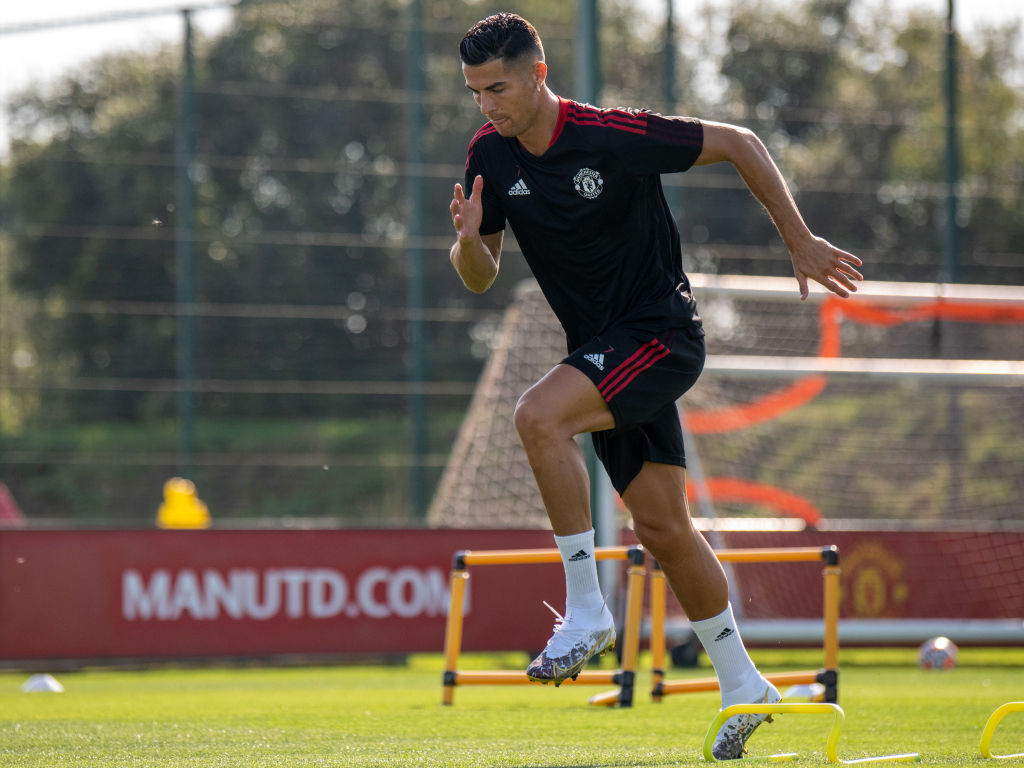A World Cup every two years: All the pros and cons of FIFA's new idea
A World Cup every other year seems like a radical incentive but is it wholly a good or bad idea? Let's sum up the positives and negatives...

Arsene Wenger hasn't had an idea this badly-received since signing his last Arsenal contract.
FIFA's Head of Global Development is said to be in favour of the idea of biennial World Cups, which the governing body is set to discuss this week. A World Cup every other year certainly feels like ordering takeaway every week instead of just your average, monthly amount - but not everyone thinks it's a good idea.
And that's putting it mildly. Wenger and FIFA have been universally criticised for the idea; Jurgen Klopp has panned the plans, while UEFA president Aleksander Ceferin has already cited his "grave concerns".
Football is so rarely black and white though: unless you support Newcastle United. Is it such a bad idea? Are there chinks of light in this plan? Or do the negatives outweigh any possible positive?
PRO: The greatest show on Earth... more often
Who doesn't love the World Cup?
Four years is a long time to wait for football's holy grail. Consider that the Champions League and Premier League happen every season: they're not any less popular or prestigious, considering they're basically on all the time. That festival fever that swept through Europe over the summer - wouldn't you like that every summer?
When the World Cup was originally conceived, only a handful of clubs wanted to enter, let alone watch. Now we live in a world with billions wanting to watch, enter and even host - and waiting once every four years might seem a little archaic to some.
Get FourFourTwo Newsletter
The best features, fun and footballing quizzes, straight to your inbox every week.
CON: The prestige is ruined
Actually, the archaic scheduling of the tournament is actually a plus for many. Once every four years might seem like an ancient, Olympian idea but it's the way it's always been - and such mythical status should be preserved.
The World Cup is special because of its infrequency. You don't collapse to your knees after missing a penalty in the final of a tournament that you could so easily win again soon, now do you?
Only one man has won the tournament three times - and that was Pele, someone who is still largely considered by many to be the greatest ever. The World Cup is not a tournament that players should rack up medals of. It's something that you should only see a few of in your lifetime. There aren't many World Cups: that's partly what makes them memorable, weirdly enough.
PRO: Smaller countries getting into the tournament - and getting to host it

A 48-team World Cup seems like overkill and yet that's the plan for 2026. If we had these competitions more frequently, perhaps there would be less need to cram in as many nations as possible once every four summers.
And that's just the countries entering: look at the nations who want to host it. England hasn't hosted the tournament for 55 years and we're one of the bigger global superpowers.
Shouldn't everyone get to see the competition at least once in their lifetime?
CON: World Cup participation and hosting should be earned
Simply upping the number of World Cup tournaments won't just clear the backlog of countries who want to host it. Countries who have been outbid recently, like Morocco, will still struggle to compete with bids from the likes of USA, Saudi Arabia and major European nations, however often the tournament is staged.
A World Cup every two years doesn't actually fix any inequality in the world. It doesn't give smaller nations a chance to enter more tournaments, it just gives bigger nations more scope for silverware. And if we're being particularly realistic, few actually want a biennial World Cup to give the likes of Panama or Norway a better shot at qualification, do they?
If FIFA really want to give more nations a chance at playing at a World Cup, spreading wealth and qualification places a little more socially might be a better place to start. In the end, bigger countries are still going to monopolise the tournament.
PRO: More focus on international football

It used to be that playing in the World Cup would be the pinnacle of a player's career. Now, there is some debate about whether or not the tournament is as prestigious as the Champions League.
By having an international tournament every year, the football calendar is always gearing up to playing for your country. It's not about state-sponsored club sides but a competition that money can't buy. A competition that the general public are more inclined to watch and one that will sweep across the world more than your average Champions League tournament.
With the world bigger than ever, surely the World Cup is the most democratic kind of tournament, not reliant on who buys the best players or who comes from where. Anyone anywhere can enter and win. That's surely a good thing to have every summer and for the football calendar to build up to.
CON: International football isn't what it was
There's a reason international football has lost some of its gloss - it's simply not as good. Sorry.
Euro 2020 was fantastic - but it was a lower quality of football, tactically and technically, than many of us watch every week. OK, state-sponsored club sides might dominate the game - but that's because they've ploughed their money into it and ultimately, you get what you pay for.
Why should there be a call for more football when not even the champions can fill their ground every week? That's not a dig at Manchester City, either: just an admission that there's more than enough top-quality football to go and see, if the appetite is truly there for it.
International football is still great, it just can't compete with club football's cohesion - and staging a summer tournament more often isn't likely to change that. Clubs have built the sport into what it's become: they should surely get more control over the sporting calendar?
PRO: Fewer preseason tournaments - and fewer games that don't matter

Managers will claim that their players play too much as it is - only for the clubs themselves to organise jollies to marketable areas of the world. Arsene Wenger has always talked about cutting down on games that don't matter - whether they're dead rubbers or friendlies - and more World Cups increases the games that do matter.
If you're planning on flying to North America to play friendlies, then why not have a tournament that the whole world will actually want to watch? When you put it like that, there doesn't seem to be an excuse for being tired.
And anyway, if your players can't cope with tiredness, give more chances to youngsters.
CON: It's not just about tiredness - it's about time away from football - and not just for the players
There's a huge difference between preseason tournaments and the rigour of a World Cup: of course Italy vs England in a major European final is going to take more out of a player than Manchester United vs LA Galaxy. And it's not just about the physical aspect.
The emotional rollercoaster of a major tournament can leave a spiritual hangover. Players need holidays. They need time away from the game, even it's just four or five weeks at a time. They need space from the spotlight. Reflection. They need a chance to fully relax and avoid burnout mentally as well as in their bodies. And anyway, why should clubs - who actually pay these players the wages - give them at least a month a year to do the same job for a different team?
That time off is earned: for all of us. The Euros were great - but so were the two or three weeks before, in anticipation for the games to begin. It was the first time since the resumption of domestic leagues, post-COVID, that we'd had no football on. And it's necessary.
You don't come to appreciate something if you have it all the time. That's the beauty of a four-year cycle.
Subscribe to FourFourTwo today and get three issues delivered for just £3. The offer ends October 17, 2021.
READ NEXT
RICH JOLLY How to beat Bielsa: Why Leeds United's biggest weakness lies in their 'spare man' system
RANKED! Every Premier League kit this season from worst to best
BRENTFORD How the Bees' Moneyball philosophy overcame play-off heartbreak to make it back to the promised land
FourFourTwo was launched in 1994 on the back of a World Cup that England hadn’t even qualified for. It was an act of madness… but it somehow worked out. Our mission is to offer our intelligent, international audience access to the game’s biggest names, insightful analysis... and a bit of a giggle. We unashamedly love this game and we hope that our coverage reflects that.


